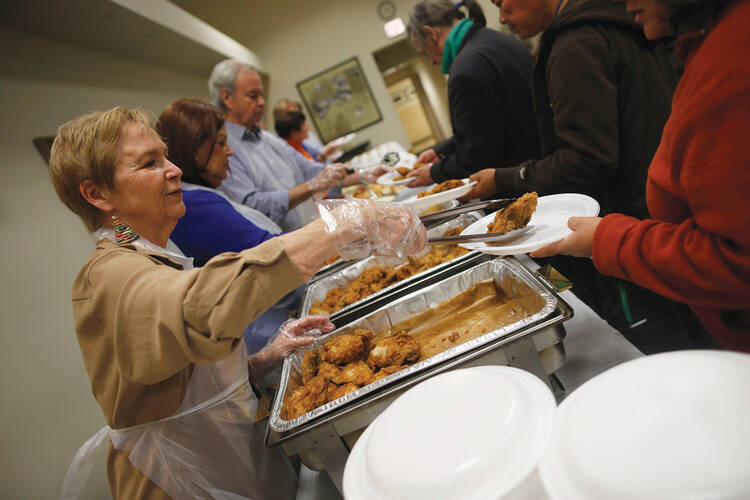For the first time since the Great Recession threw the United States and then the world into an economic tailspin, the U.S. Census Bureau reports that the U.S. poverty rate experienced a year-over-year decline, falling from 15 percent in 2012 to 14.5 percent in 2013. The last time the rate declined similarly was 2006. Though an improvement, the 2013 U.S. poverty rate was still 2 percentage points higher than it was in 2007, the year before recession began.
Even better news was a substantial reduction in America’s child poverty rate, which fell from 21.8 percent in 2012 to 19.9 percent in 2013. According to the Census Bureau’s annual analysis of poverty and income in the United States, released on Sept. 16, the number of children in poverty declined from 16.1 million to 14.7 million. This was the first time since 2000 that the child poverty rate declined.
The report suggests that there is plenty of reason to remain concerned with poverty in the United States. The overall number of people in poverty was unchanged at 45.3 million—about one third are children—and real median household income remained stagnant for the second year in a row, suggesting that average Americans are still waiting for relief years after the nation’s economic recovery began in 2009.
Catholic Charities USA, in its annual survey, reports a parallel slight decline in the number of Americans who have asked for help. The agency reports that in 2013 it served just over 9 million “unduplicated clients.” That number represents a decrease from the number of people it assisted at the peak of the recession, but the 2013 figure remains nearly 17 percent more than the number of people who asked for assistance in 2007, “demonstrating the continued impact of the Great Recession on the nation’s most vulnerable.”
Indeed, while absolute client numbers went down, those who did come to C.C.U.S.A. offices had more needs. In 2013, Catholic Charities reported 17.3 million health, education, nutrition, housing and other services to clients across 31 categories—the highest number of services ever recorded. The Rev. Larry Snyder, president and chief executive officer, told America that requests for food assistance represented the largest need C.C.U.S.A. offices fielded in 2013.
He said the new census data and Catholic Charities’ own tracking indicate some modest good news about the state of the economy but cautioned “the people we’re serving have greater needs” and worried over an increase in the number of seniors, some for the first time, coming to C.C.U.S.A. for assistance. More people may have found jobs as the nation’s recovery continues, he said, but many of them are now earning wages that are far below what they had been receiving before the recession.
Father Snyder plans to step down from his position at Catholic Charities in February, but before he goes he is leading a national effort to change the mind-set of the social service provider. He wants to move it away from a strategy of merely responding to emergency needs and begin more integrated and comprehensive management of clients that will begin to move them out of poverty permanently. “How you approach people has a lot to do with it, he said. “The government programs we help administer look at people in their deficits and their needs and use a one-size-fits-all approach.
“We’re trying to create a system that adjusts to the individuals, that looks at what assets they have in relation to their needs and decides what’s the plan to help them get out of poverty instead of what will just help them survive."








